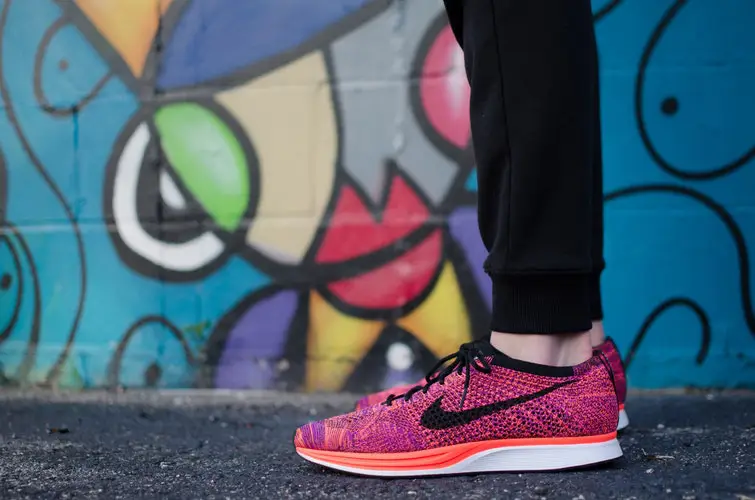Mental performance impacts everything you do.
Whether you’re working, studying abroad, or running your own side hustles, you need to be at your best. Small differences in your mental performance add up to enormous changes in your results – especially over time.
Investing a little time and effort into these top tips will result in better short- and long-term mental performance. Imagine how much more you could achieve if you were just 10% more productive every day.

That’s what we’re going for with this list – on top of that, they might just result in a happier life and better self-awareness!
1. Sleep: Time to Recharge your Brain
You’re probably not sleeping enough. Most of us aren’t!
Millennials have serious sleep issues: a never-ending cycle of stress, commitments, and screen time all add up and screw up your sleeping patterns.
Think about it – how many times have you gotten into bed for an early night only to end up on an Instagram binge until 3 am? We all have horror stories like these, and they compromise our day-to-day experiences and performance.
Sleep deprivation brings your reaction time, processing, and energy levels way down. This results in slow, sluggish waking hours. Getting eight hours a night isn’t optional – up your sleep and you’ll quickly make up for it with increased efficiency when you are working.
A few well-rested, productive hours are better than an all-nighter at 10% productivity!
2. Exercise: Keep it Regular and Balanced

Studies show that exercise directly improves mental performance in a whole bunch of psychological tests.
This is another area where your hormones are key, meaning longer-term changes. You’re also going to immediately improve after exercise, leading to a sharp spike in performance – another great reason to get a morning workout.
Exercise is also great for fending off mood disorders, regulating your emotions, and providing a healthy and stable environment. With the continuous march of mental health risks, it’s important to take care of yourself. Exercise helps you perform and feel better.
Cardio exercise provides an interesting short-term spike in performance, especially when combined with effective nutrition. It primarily improves “interference-mediated” tasks where you need to concentrate on complex problems.
This is fantastic for the real world, where interference is rife and can really harm your focus!
On the other hand, strength training has beneficial effects on memory and “global cognitive performance”. Meathead stereotypes couldn’t be further from the truth – and 3 sessions a week provides optimal benefits! [1]
You can also look into improving your posture at work, it really makes a difference.
3. Eat Your Veggies!
What you eat affects everything from your head to your waistline. If you’re interested in mental performance, then getting comfortable with nutrition is key.
Nutrient deficiency is one of the most common problems in our society and that’s clear from the number of diet-related chronic diseases in the top 10 causes of death.
Getting plenty of vitamins and minerals is key – especially when these come from whole food sources. B vitamins, vitamin D, Magnesium, and Potassium are all key and can be found in common plant foods like dark leafy greens [2].
It might sound like a cliché, but you should eat your veggies if you want to get smart!
4. Intermittent Energy Restriction or a Fat- and Protein-Rich Breakfast
Intermittent energy restriction is a good way of producing short-term mental health benefits. This isn’t the same as fasting: it’s not necessary to wait a certain number of hours. Simply abstain from food during the mornings
This can be useful – especially in the morning – where energy levels are easily modulated by food intake. If you’re used to eating junk foods in the morning, nothing might be a better idea until lunch time.
Eating heavy meals in the morning is a poor choice and switches you straight back to recovery (sleep and digest) focus. If you are going to eat breakfast, stay light, combining a light carb with proteins and fats, as well as a good coffee.
Intermittent fasting is a fad, but energy restriction does have benefits. Waiting until the afternoon – or just until you’re done with the most taxing work of the day – can be great if it suits your diet/schedule. Give it a try and see how you respond.
5. Brain Food: Choline and Neurotransmitters
When you do eat, getting the right foods will make a significant difference to brainpower.
The first food you eat in the day will set the psychological tone, affecting your brain function through the day.
High-quality amino acids are great for boosting mental performance. Tyrosine, tryptophan, and theanine are all keys. Choline is another key compound for mental performance where it supports communication inside the brain [3].
These are all found in eggs, spinach, nuts and seeds, and fatty fish. You might be seeing a trend here: these are all fantastic, classical breakfast foods!
Putting time into your food will reward you with improved mental and physical performance when you need it.
6. Eat: Fats and the Brain
Fats are one of the most important ways of supporting your brain. Many of the best ‘healthy fats’ – such as olive oil, fatty fish, and nuts/seeds – are key for protecting your brain and supporting energy balance.
Getting good at using fats as fuel is a key way of improving your brain power for life. You can achieve this by increasing the balance of fats to carbs in your diet or use fasted cardio to improve fat-use.
This is especially important for ensuring your brain ages well, ensuring maximum mental performance now and into the future. Futureproof your brain now.
7. Stay Hydrated
Water is great, and dehydration is a serious problem.
When was the last time you drank water by itself? Most of us run into drinking primarily non-water liquids. Coffee and tea are both mildly diuretic, meaning they increase urination, which can lead to losing key minerals or simple dehydration.
Your brain doesn’t perform well during dehydration and it can rapidly increase the onset of fatigue and headaches/migraine [4]. If you’ve ever worked in a hot office for hours on end, you’ll realize just how much of a roadblock this can be to productivity.
Keep water nearby (you’ll want at least 500ml per hour) and make sure you’re getting salts from healthy sources like nuts, seeds, fatty fish, eggs, and veggies.
8. Green Tea: The Importance of GABA and EGCG

There are drinks that aren’t water that can provide mental benefits. It’s not just about hyping yourself up – committing time to better relaxation means better performance when it counts.
Green tea is an underrated way of boosting performance and recovery. The GABA compound in green tea combats stress and improves your general hormonal environment, with key pro-relaxation benefits [5].
EGCG and other “catechin” compounds are also antioxidants, reducing the death and damage of cells. This can be fantastic for brain cells, protecting you from degenerative disease and keeping your brain sharp.
Green tea is a fantastic drink overall and it should be your go-to when it’s too late for a coffee or you’re looking for a gentler buzz.
9. Nootropics: Supplements for Mental Performance and Health
Nootropic is just a name for a compound – usually a lesser-known macronutrient – that is taken specifically for its mental health benefits. Nootropics can be herbs, vitamins, minerals, food, supplements, nutraceuticals, prescription and non-prescription drugs, and more. The term has become popular recently as the increased demand for the products has made the term commonplace.
These compounds are widely varied since the brain has so many chemical needs and demands. There are a few key benefits and focuses you’ll see on the market, however [6]:
- Anxiety reduction
- Stress management and tolerance
- Pro-relaxation compounds
- Memory and focus modulators
- Restful sleep supplements (such as Performance Lab Sleep)
These all compound to provide effective mental performance. They also overlap with many of the things we’ve already talked about on this list! Combining them with healthy food choices (for choline and amino acids), for example, is a great choice.
There are such a wide range of nootropics that we can’t really list them, but you can look at products like Mind Lab Pro as an example. This is a pre-built nootropic stack, which can be really helpful when the doses and specifics of these compounds are so complicated.
Alternatively, a simpler nootropic supplement like Performance Lab Mind can be used as a foundation from which to add other useful supplements, such as the range’s Performance Lab Whole-Food Multivitamin. Making sure you cover both your nutrition and cognitive bases.
Nootropics vary but are united by their benefits to mental performance. A well-constructed balance of supplementary nootropics has been shown to support neural health and improved executive control.
10. Stress.
Too much stress for too long is toxic for your brain and body. Excessive stress adds up to serious mood disorders like depression and anxiety. Even if they never get this far, they can burden you and reduce your ability to perform in everyday life.
Take some time out for yourself and remember that you’re not going to be able to perform at 100% all the time. Taking time out to de-stress is essential, even if it feels like you ought to be going 24/7.
It’s easy to think everyone’s working all the time when you look at social media, but that’s unsustainable. Give yourself some time every day and every week to really unwind – burnout and crunch are serious problems that you need to avoid!
Final Thoughts: Just Do What You Love
It’s so important to do the things you love. Whatever that might be – art, music, reading, or just spending time in relaxing places. This is the easiest and most enjoyable way to improve your cognitive performance.
Aside from reducing stress, it’s important to take time to remember what you’re working hard for. Optimizing performance isn’t usually a goal by itself – you should be working hard so that you can enjoy the fulfilling things in life.
Putting too much stress on yourself can drive you into the ground. Taking time to experience the goals you’re working towards and the leisure time you’re trying to earn can refresh your psyche and keep you healthy and happy during times of serious work volume.
- [1] 3 sessions per week provides a better psychological boost than 2
- [2] Key vitamins are crucial for mental performance and energy levels
- [3] Tyrosine and Tryptophan are key to mental health
- [4] Dehydration reduces cognitive performance
- [5] GABA in food affects neurotransmitters and overall brain health
- [6] Nootropics, pharmacology, and what they can do for you








